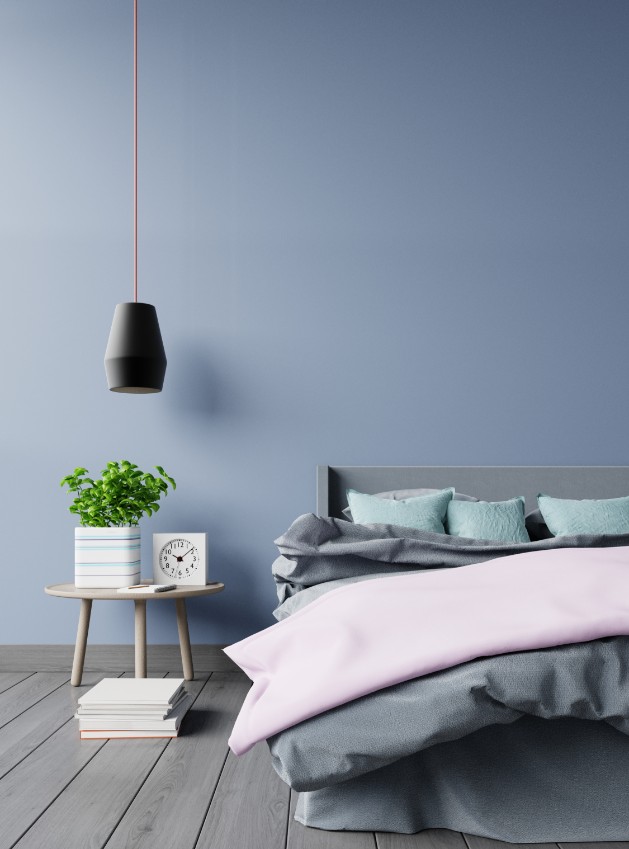Unlocking Restful Sleep: The Ultimate Guide to Feng Shui Bedroom Colors
Are you struggling to get a good night's sleep? You've tried everything – new mattress, blackout curtains, white noise machine – but still find yourself tossing and turning. Perhaps the solution lies in something you haven't considered: the color of your bedroom walls. According to feng shui, an ancient Chinese philosophical system, the colors in your environment significantly impact your energy and well-being, especially in your bedroom, the sanctuary for rest and rejuvenation.
Feng shui bedroom colors play a pivotal role in creating a harmonious and balanced space conducive to relaxation and sleep. Choosing the right hues can transform your bedroom into an oasis of tranquility, fostering positive energy flow and promoting a sense of calm. Conversely, inappropriate colors can disrupt your sleep, create feelings of anxiety, and negatively impact your overall health.
The concept of using color to enhance well-being is rooted in the ancient Chinese practice of feng shui, which seeks to harmonize individuals with their surrounding environment. The practice considers the five elements – Wood, Fire, Earth, Metal, and Water – and their corresponding colors to balance energy and create a supportive atmosphere. In the context of bedroom color, feng shui emphasizes creating a space that promotes restful sleep, intimacy, and overall well-being.
One of the primary issues related to feng shui bedroom colors is the common misconception that one size fits all. While certain colors are generally considered beneficial for bedrooms, the best choice depends on factors like your personal energy, the bedroom's location, and the specific goals you want to achieve. Simply painting your walls a popular feng shui color without considering these factors may not yield the desired results.
Understanding the basics of feng shui color application is essential. Each color is associated with a specific element and evokes particular emotions and energies. For example, green represents growth and renewal (Wood), while blue promotes tranquility and peace (Water). Red is associated with passion and energy (Fire), while yellow represents optimism and joy (Earth). White and gray are associated with clarity and precision (Metal).
One benefit of incorporating feng shui bedroom colors is improved sleep quality. Soft, calming colors like gentle blues and greens can promote relaxation and reduce stress, leading to a more peaceful slumber. Another benefit is enhanced intimacy. Skin tones, such as soft peaches and warm beiges, can create a sense of warmth and connection, fostering intimacy within the relationship.
To successfully implement feng shui bedroom colors, start by decluttering your room. A clean and organized space allows energy to flow freely. Next, identify your personal energy needs and the Bagua areas of your bedroom. Consider your intentions for the space - do you primarily seek relaxation, romance, or both? Then, choose colors that align with these goals and complement the room's natural light and size.
Advantages and Disadvantages of Feng Shui Bedroom Colors
| Advantages | Disadvantages |
|---|---|
| Improved sleep quality | Can be time-consuming to research and implement |
| Enhanced mood and well-being | May clash with existing decor |
| Increased intimacy and connection | Can be subjective and depend on personal preferences |
Best Practices:
1. Avoid overly stimulating colors like bright red or orange in the bedroom.
2. Use muted tones and soft shades to create a calming atmosphere.
3. Consider the size and lighting of the room when choosing colors. Lighter colors can make a small room feel larger.
4. Incorporate accent colors through bedding, curtains, and artwork.
5. Pay attention to the Bagua map to determine the best colors for specific areas of the bedroom.
Frequently Asked Questions:
1. What are the best feng shui colors for a master bedroom? Generally, calming colors like blues, greens, and earth tones.
2. Can I use red in my bedroom according to feng shui? While red is associated with passion, too much can be overstimulating. Use it sparingly as an accent.
3. What colors should I avoid in my bedroom? Bright, jarring colors like neon hues are generally not recommended.
4. What is the best feng shui bedroom color for couples? Skin tones and soft, warm colors can promote intimacy.
5. How do I choose the right feng shui colors for my bedroom? Consider your personal energy needs, the room’s Bagua areas, and your intentions for the space.
6. Can I use black in my bedroom according to feng shui? Use it sparingly, as too much can create a heavy or depressing atmosphere.
7. What are some examples of good feng shui bedroom color combinations? Blue and green, soft peach and cream, or pale gray and white.
8. What if my favorite color isn't considered "good" feng shui for a bedroom? You can incorporate your favorite color through accents like bedding or artwork.
Feng shui bedroom colors are a powerful tool for creating a harmonious and restful sleep sanctuary. By understanding the principles of feng shui color application and choosing hues that align with your personal needs and the energy of your space, you can transform your bedroom into an oasis of tranquility. While the implementation might require some research and effort, the potential benefits of improved sleep, enhanced mood, and increased intimacy make it a worthwhile endeavor. Start by decluttering, assessing your needs, and experimenting with different color combinations. Embrace the power of color and create a bedroom that nourishes your mind, body, and spirit.
Decoding the black dog big lips meme phenomenon
Decoding the allure of sherwin williams white trim
Upgrade your kitchen with sw modern gray cabinets













